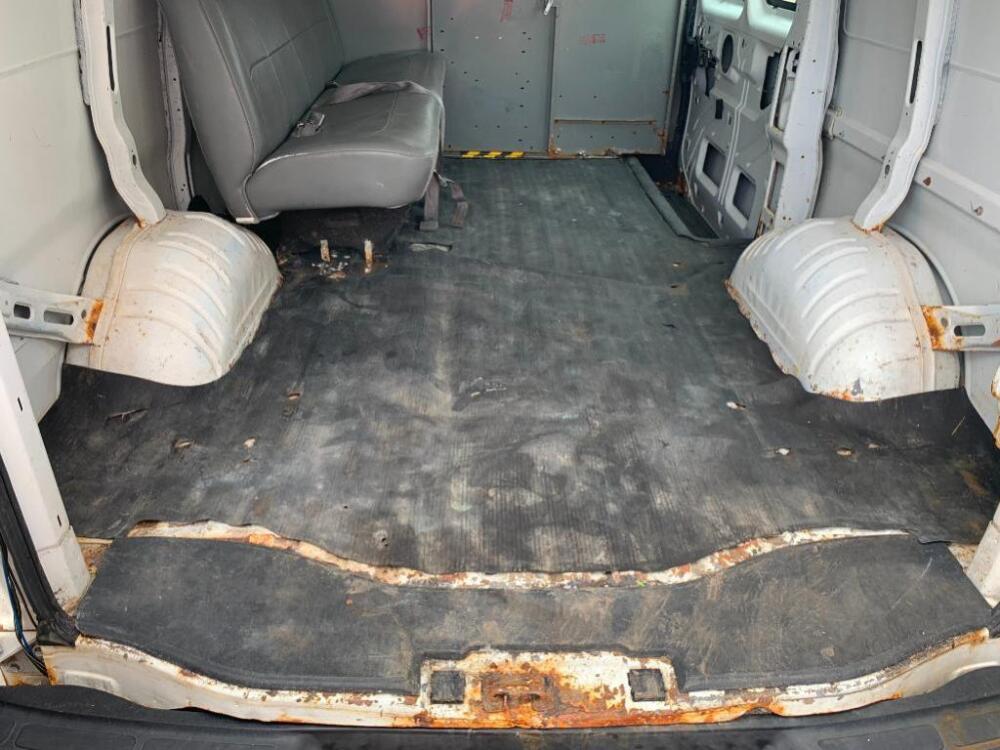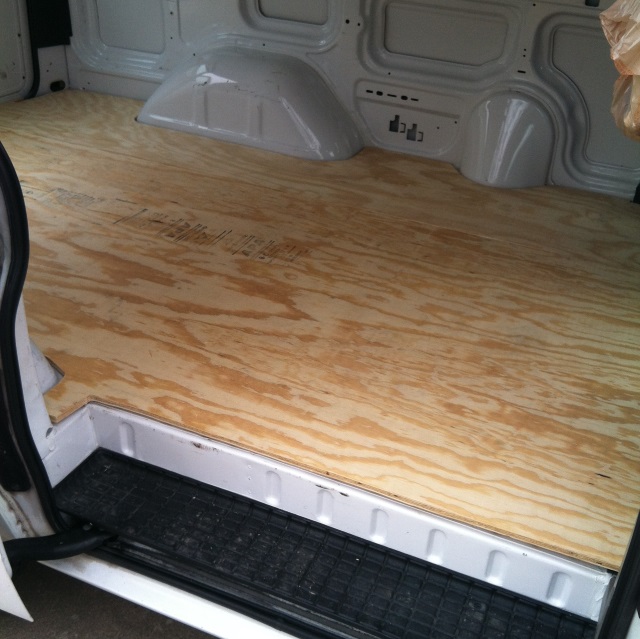No products in the cart.
Van Plywood Floor vs. Composite Floor

Upfitting a work van often begins with thoughts of storage systems and bulkheads, but cargo van flooring is a more essential area to consider first. Not only does the van’s floor support shelves and partitions, but it provides a work surface and a place to store gear and goods.

However, the corrugated steel flooring that comes with most cargo vans isn’t ideal for most work purposes because of the:
- Potential for a slippery surface
- Vulnerability to dings and dents
- Exposure to rust and corrosion
- Minimal insulation qualities (for both temperature and sound)
So, covering up the stock van floor is a good place to start. A business owner may think that plywood is all that’s needed, but composite materials offer more advantages. Let’s see how these two types of van floors stack up.

Plywood Flooring For Work Vans
No one can blame a business owner for keeping an eye on the bottom line, and that’s why plywood van flooring can be appealing. But beyond price, there aren’t many advantages to going this route. Here’s what to know about using plywood in your van.
- Requires Custom Fitting: You’ll need to carefully measure and cut the plywood to ensure a good fit over the cargo area. Otherwise, the panels can shift and leave the original floor exposed.
- No Slip Reduction: A plywood floor doesn’t provide extra traction for reducing slip hazards.
- Retains Moisture: Water and other fluids are easily absorbed into plywood, which can cause corrosion to form on adjacent metal surfaces.
- Vulnerable to Damage: Heavy tools and equipment can easily cause splintering and dents to a plywood floor.
- Need for Sealed Seams: Laying multiple boards next to each other requires some type of seam coverage to prevent moisture and dirt from entering the gaps and penetrating onto the painted surface underneath.

Composite Flooring for Work Vans
It’s no secret that composite flooring costs more than plywood, but the advantages of a purpose-built covering can easily outweigh the expense. Keep these factors in mind for a composite work van floor.
- An Exact Fit: There’s no timing-consumer measuring involved with composite van flooring as each system is made to fit specific van makes, models, and configurations. A precise fit ensures maximum protection and no shifting.
- Slip Protection: Composite floors are engineered with a built-in slip reduction feature to protect against accumulated liquids or work shoes covered in mud or snow.
- Moisture Resistance: Liquids won’t be absorbed into a composite floor and penetrate onto the metal underneath. And chemical resistance assures that most solvents and solutions won’t harm the material.
- Damage Resistance: Unlike plywood, composite flooring is designed to withstand the rigors of everyday activities for businesses involved in the trades and similar industries.
- Integrated Assembly: Multi-piece composite systems include easy-to-use joints that create a unified floor without gaps.
- Reduced Weight: Composite floors weigh less than comparable plywood solutions, which maximizes fuel economy and payload capacity.
Discover the Right Flooring Solution for Your Work Van
Let the experts at Upfit Supply help with the ideal flooring system for your cargo van. Contact us today to get started.






